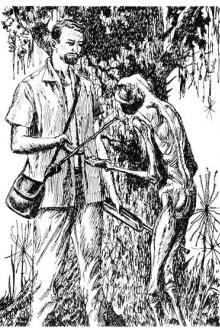Tarashana by Rachel Neumeier (best novels to read for students .TXT) 📗

- Author: Rachel Neumeier
Book online «Tarashana by Rachel Neumeier (best novels to read for students .TXT) 📗». Author Rachel Neumeier
“I am certainly correct in this. My mother will probably invite you to sleep in her tent. You may accept if you wish. You may wish to speak to her regarding certain matters before you decide to raise up your own tent. If you do so, women will ask you whether you are married. If you say someone here is your husband, by saying it, you will make it true among the Ugaro. You should know that.”
“I should certainly know this!” she exclaimed. She said it in taksu, and laughed, but then she looked at Suyet.
He was half laughing, but also holding up his hands. “It’s not—I don’t have the rank, so—”
“Yet,” murmured Aras.
“My lord—”
“The situation might temporarily become a little complicated, but I think it would probably work itself out in time.” Aras added to Lalani, “Ugaro don’t consider it right for a man to explain this sort of thing to a woman. Discuss anything you like with Ryo’s mother.”
“Yes,” I agreed, relieved. “Do not hesitate. She will not be offended by anything you ask.” I could hardly imagine the conversations that might occur between Lalani and my mother. That thought was both amusing and terrifying.
Late in the afternoon, after so many days of traveling, we finally followed the lakeshore around the steep roots of mountains and found my mother’s camp spreading out along the edge of the water. Great tents had been raised up in an arc that followed the curve of the land, with patterns of porcupine quills dyed pink and yellow and green worked into each tent to show the family of the woman who owned it. Wagons formed a second arc, echoing the first. Long cords strung with beads made of dyed bone and deer antler hung from the corners of some of the wagons, rattling in the wind that rolled off the mountain’s flank and gusted across the lake. Clusters of smaller tents spread out away from the lake, some for young women who had married not long ago and perhaps did not yet have many children, others for men and boys.
Nearer the water, many comfortable places had been made for women to work at all their many tasks, and other places for bowyers and metalworkers and other craftsmen. In the middle of everything, where everyone could help keep ravens and dogs away, thin strips of drying meat were laid out on racks. Later, that meat and other foods would be stored in hollows carved into the mountain, with blocks of ice to seal the entrances and keep the stores from spoiling. Already many of the coldest, deepest storage places would be filled with meat taken when the steppe deer had passed across our territory. Ice stored there, with dried grasses packed around it, would last all the way from one cold season to the next.
Farther from the camp, in the valley between the mountains, past the cliffs where the waterfalls came down, a few ponies and scattered cattle grazed. In the long cold, all the inGara herds would be gathered there. Little snow ever falls so close to the mountains, for the heights capture most of the snow. Then the winds that come down the mountains are so dry that they pull any snow that has fallen from the earth back into the sky. It is bitterly cold, but with the shelters for warmth at night, and with the snow seldom deep, the herds can live in these mountain valleys all winter. The herdsmen cut grass to store, and if we have enough of that and enough stored grain, we can bring most of our animals through to the spring.
In the winter lands, Lau horses catch the eye and so do Lau, so by the time we came near, almost everyone had come out of the camp to see us. Children ran up first; they had never seen Lau before, of course. Suyet leaned over toward me and murmured to me in darau, “If you’d brought in a tiger tame at your heels, I think they’d stare less!”
I laughed at him, though I was already looking past the children, waiting for the men who would come out soon—for my father. Young women were coming now to herd the children back a little distance. Young men stayed back farther, out of respect for the older men who were coming more slowly. Older women would come last of all—until they realized a Lau woman had come with us. Then my mother and other women would come forward.
Finally I saw my father. He was walking among other respected warriors, not moving with any haste, but not pausing to speak to one person or another as ordinarily he might have. By coming out of the camp to greet visitors as they rode in, my father made it clear he regarded his guests as important people.
The last small distance seemed to take surprisingly long to cross, even though the strides of the Lau horses had not become any shorter. But finally we came near enough. I checked my mare, slid down from her back, and gave her reins to a boy who ran up to take them. “Put the saddle packs beside my mother’s tent,” I told him. “You may ride this mare down to the pasture if you wish. The Lau teach their horses different signals than we use, but be patient with her and she will come to understand you.”
The boy listened seriously, though he was grinning. He was a boy I knew, a son of a cousin, but he had been a child when last I had seen him. Now he was old enough to be trusted with important duties, and plainly very pleased for a chance to ride a tall Lau horse. He touched the mare’s face to greet her.





Comments (0)